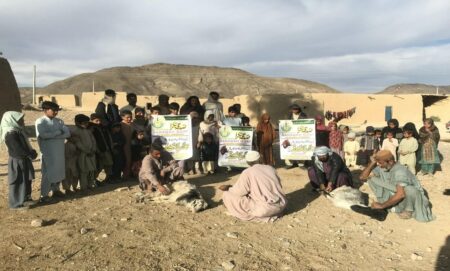Table of Contents
Albaraka Trust UK
In Islam, Sadaqah Donation is the most fundamental of all acts of a believer. It is a word that means “alms.” Therefore, it is far more than just giving money to charity. Sadaqah does not only include monetary donations but also includes acts of kindness such as visiting people who are sick or in need and adopting poor families, offering them gifts, or even just being on good terms with them. In this article, the author provides the reader with a useful overview of why Sadaqah is an important aspect of Islam, what type of deeds makeup sadaqah, and which benefits it has for the person acting.
What is Sadaqah?
Sadaqah is an Arabic word meaning almsgiving. It is one of the pillars of Islam and one of the biggest acts of charity a Muslim can do. Sadaqah comes from the root word Sadaqah, which means to purify, sanctify, or cleanse. Allah says in the Quran: \” O you who believe! Give alms (zakat) of what you possess, before it is consumed, that he may have certainty (of your faith) and fear nothing on earth but Allah.\” (Quran 2:283)
There are many virtues to giving Sadaqah. First, it helps relieve poverty and suffering. Second, it builds relationships of compassion and brotherhood between Muslims. Third, it demonstrates our sincere desire to please Allah by helping others in need. Fourth, Sadaqah stimulates economic growth by encouraging people to invest their money in productive activities instead of wasteful consumption. Fifth, Sadaqah enables us to live a righteous life and make amends for our past sins. Finally, it teaches us about self-discipline and patience.
The Basics of Sadaqah
In Islam, Sadaqah (charity) is one of the Five Pillars of Islam. Sadaqah is defined as the voluntary giving of wealth, food, clothing, or other material goods to help those in need. The main purpose of Sadaqah is to help the needy and promote social justice. There are several virtues associated with Sadaqah that make it an important part of Islamic tradition.
One of the virtues of Sadaqah is that it helps reduce poverty and promote social mobility. By donating money to charity, individuals can help create opportunities for others who may not have had access to similar resources in the past. In addition, helping others positively affects one’s own mental health and well-being. According to some researchers, regularly volunteering positively impacts both physical and psychological health. Additionally, donating money to charity can help build community spirit and increase understanding between different groups of people.
Sadaqah also promotes spiritual growth. By giving money to charity, individuals can develop a sense of selflessness and generosity. This type of character trait is essential for developing a strong faith in Allah (God).

Is Sadaqah obligatory in Islam?
Sadaqah, or almsgiving, is an obligatory act of charity prescribed by Islam. The Qur’an states: “O you who believe! Give up all rights of property that you may possess and give alms that you may be able to do good (to others).” (Qur’an 2:195) Sadaqah is one of the Five Pillars of Islam, and its importance can be seen in the fact that it is mentioned directly after the profession of faith.
The main objectives of Sadaqah are to purify the individual giving the alms, to help those in need, and to cultivate a sense of community. The purification aspect is important because it helps remove sin from the giver’s conscience. The purpose of helping those in need is to encourage people to help their fellow human beings instead of expecting society to take care of them. Finally, cultivating a sense of community is important because it builds relationships between people and helps create unity within Muslim society.
There are several benefits that come with performing Sadaqah. For example, it can help increase one’s faith in Allah Almighty because it demonstrates our dedication toward His teachings.
The Virtues of Sadaqah
Sadaqah is one of the Five Pillars of Islam, and it is a voluntary act of charity. It is one of the most important duties that Muslims are commanded to perform. Many virtues come with Sadaqah, and here are five of the most important:
1. Sadaqah makes us charitable.
Sadaqah makes us feel grateful for what we have, and it inspires us to give more back to our community and society in general. It teaches us to be thankful for our blessings, even if they aren’t material possessions. It makes us more compassionate and understanding, and it encourages us to help others whenever possible.
2. Sadaqah builds community spirit.
Muslims are always encouraged to support each other, especially when it comes to helping others out with their charitable work. By donating money or time together, we build strong ties within our communities. This is an especially valuable lesson to learn during difficult times like these when so many people are struggling financially.
3. Sadaqah brings peace of mind.
When we give Sadaqah, we commit ourselves to doing something good for others without expecting anything in return.
Conclusion
Sadaqah is one of the Five Pillars of Islam, and it refers to giving charity in a way that is pleasing to Allah. Many virtues are associated with Sadaqah, including helping others find their own path to Allah, providing comfort during difficult times, and inspiring others to give back to society. Giving back through Sadaqah can be a very rewarding experience, and it’s something that everyone can participate in. So if you’re looking for an opportunity to make a difference in the world while also benefiting yourself financially, consider giving sadaqah a try!